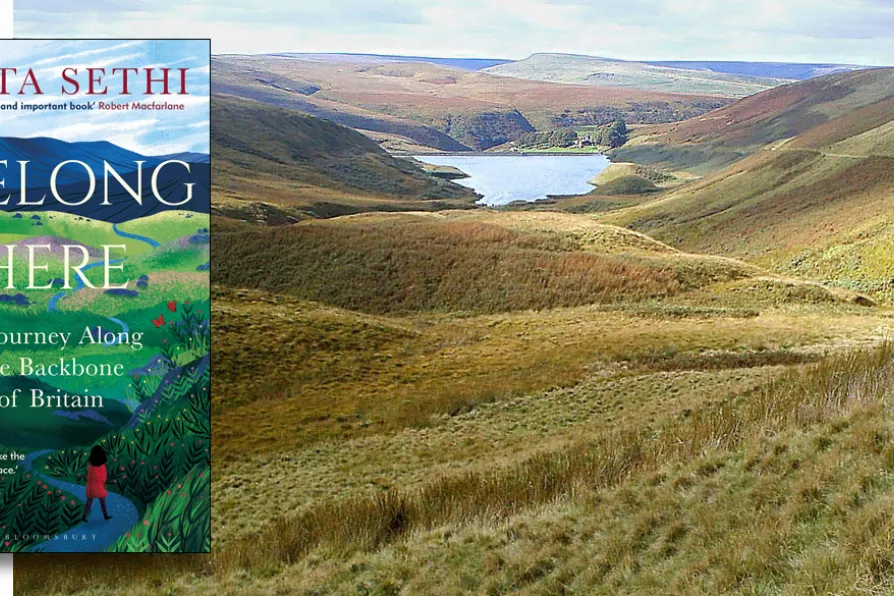PETER MASON is wowed (and a little baffled) by the undeniably ballet-like grace of flamenco

 BRITAIN'S BACKBONE: Wessenden Valley on the Pennine Way
BRITAIN'S BACKBONE: Wessenden Valley on the Pennine Way
I BELONG HERE is an accomplished and emotionally comprehensive extended metaphor, adroitly used by an author seeking the positive repudiation of a hate crime and all that lies behind it.
Anita Sethi’s journey along the Pennine Way, Britain’s “backbone,” was ignited by a vile verbal racist assault — a variation of the “go back to where you came from” trope — on a train as she travelled to a literary festival in Newcastle. Still in long-term trauma, she then suffered the devastation of the death of a much-loved friend.
Her journey serves as a meditation both on her recollection of these specific events but also on the bigger issues faced by a society that diminishes and denudes the opportunities for, and contributions of, its non-white and non-male citizens.
In her carefully thought-through deliberations, Sethi is both challenged and inspired by the sheer physicality of her walk. She is fearlessly honest in recalling her own emotions and in employing the languages of topography and geomorphology — scar, sink hole, fault line, depression, weathering, erosion — to analyse both her and society’s wider ills.
Taken to naive extremes, this over-reliance on the enigmatic processes shaping the dominant carboniferous landscapes of her journey could have become a distraction. But Sethi is too wise and too determined a writer to fall into that literary trap.
Instead, step-by-step, gradient-by-gradient, this political travelogue, for this is what it truly is, sees Sethi considering, amongst many other macro influences, the baleful legacy of the British empire, an education system that airbrushes out the overwhelming positives of recent migrations and a rural culture that still struggles with diversity.
Her sure-footedness in filtering what she sees as she journeys through the gauzes of philosophy, history and economics is impressive, at its best touching the summit of WG Sebald’s accomplishments in The Rings of Saturn.
Yet Sethi is also sure-footed enough to document the many small kindnesses she receives along her redemptive way by all types of folk, including the oasis that is the Horton Women’s Holiday Centre. Humanity at a personal level matters to her in spite of her loss of trust, for a time, in its generality.
And as she immerses herself in the landscapes around her, both actual and metaphorical, her written confidence grows and is liberated from an outsider’s rather superficial descriptions to some of the most intuitive and resonant nature literature of recent years.
“I can be utterly unselfconscious,” she writes. “This is what it feels like, to think yourself into the natural world, to empathise with it. I want to empathise with the river, get beneath its skin and surface, to imagine what it would be like to be the river.”
There are hints of GM Hopkins’s wonderment poetry in her microscopic attention to the emotional details attached to experiencing the natural world. Recalling first seeing a ladybird as a young girl growing up in Manchester she writes: “I thought it was dying, the way its body seemed to be splitting open, but then it flew, flapped about in the air... .and became again a small oval solid thing.”
She is as knowledgeable and articulate an advocate for the urgent need to protect the English landscape from rapacious exploitation and neglect as she is of protecting the many marginalised communities under capitalism.
The unselfconsciousness that Sethi refers to above is actually an essential realisation that far from being something separate and distinct, she is very much part of the economic, social and natural landscapes of this land.
Sethi belongs here. And “here” very much needs her as an honest and campaigning voice.
Published by Bloomsbury, £16.99.

















